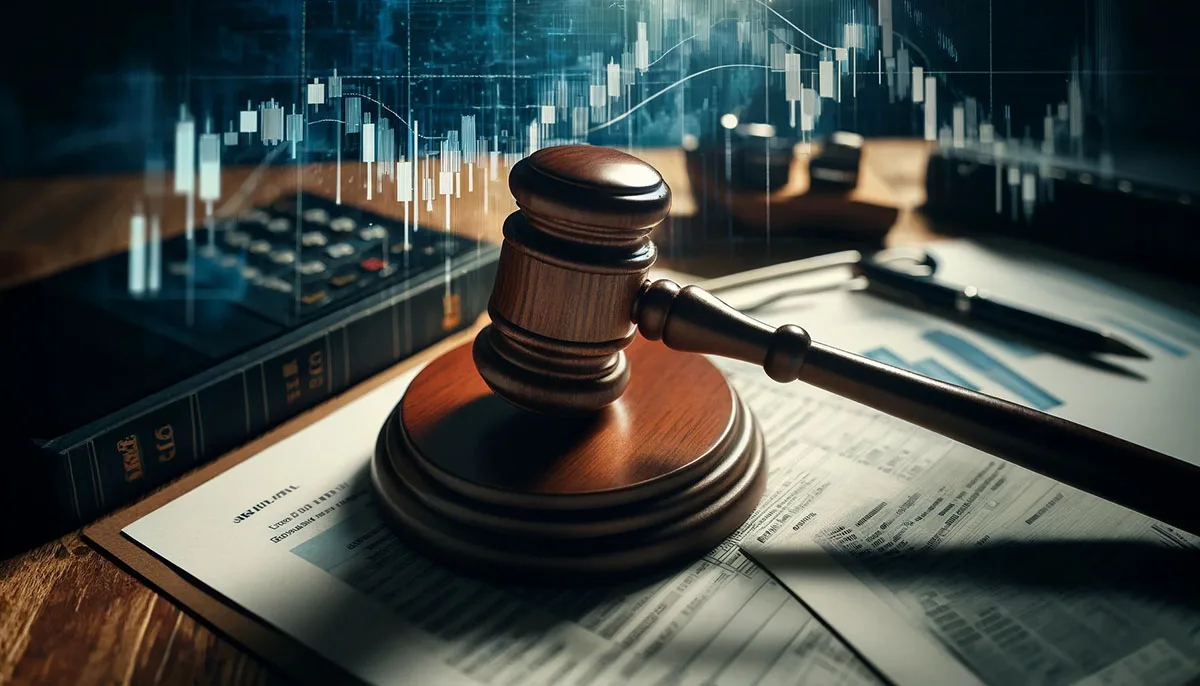Introduction
Overview of Spartan Capital Securities
Spartan Capital Securities, a significant player in financial services, offers a wide array of investment solutions and advisory services. With its proactive approach to securities and investment management, Spartan Capital has become a preferred choice for both retail and institutional investors. Recently, the firm has been embroiled in a lawsuit that poses risks to its future operations and client relations.
Introduction to the Lawsuit
The legal action against Spartan Capital Securities arises from serious accusations of regulatory breaches that, if confirmed, could reveal deep-seated issues in the firm’s operations. The charges involve misleading representations of investment risks and undisclosed conflicts of interest. The situation has captured the attention of involved parties, the general public, and the media, highlighting its potential impact on regulatory and investor protection measures across the finance industry.
Significance of the Case
This legal battle is crucial for all stakeholders and the wider finance sector. It tests the strength of U.S. securities regulations, and its results might prompt stricter rules and enhanced compliance for security firms. For investors, this case is a critical moment to evaluate the transparency and integrity of their investment partners, potentially setting a standard for future securities litigation and reforms.
Background Information on Spartan Capital Securities
Founding and Growth of Spartan Capital Securities
Founded in the early 2000s in New York’s financial district, Spartan Capital Securities evolved from a boutique firm to a major force in securities and investments. The firm expanded its offerings to include wealth management, trading, brokerage, and financial advisory, targeting both local and global markets and significantly enlarging its client base and operational reach.
Previous Regulatory Scrutiny
Despite its growth and success, Spartan Capital has faced multiple regulatory issues, including inadequate disclosure practices and client fund mismanagement. These have led to fines and influenced its compliance strategies and industry reputation.
Position in the Industry Prior to the Lawsuit
Before the lawsuit, Spartan Capital was seen as a progressive firm with strong performance and innovative strategies. Nonetheless, its regulatory history cast a long shadow over its reputation. As the lawsuit progresses, the industry’s view of Spartan Capital is critical, as its prior positive image is now being questioned.
Details of the Lawsuit


The Allegations Against Spartan Capital Securities
The lawsuit has highlighted serious misconduct allegations and regulatory breaches at Spartan Capital. The firm is accused of misleading clients about investment risks and failing to disclose conflicts of interest, suggesting a preference for profit over client fiduciary duties—a fundamental principle in financial services.
Key Evidence Presented
The prosecution has presented internal communications, ex-employee testimonies, and financial documents that appear to show deceptive practices at Spartan Capital. Clients have testified about being advised on high-risk investments without clear risk disclosure or potential conflicts, which is central to the prosecution’s argument.
Prosecution and Defense Strategies
The prosecution seeks to demonstrate Spartan Capital’s trust breach and multiple securities law violations, claiming the firm endangered the client’s financial safety. Conversely, the defense is expected to question the evidence’s validity and the witnesses’ motives, arguing that the firm adhered to legal standards and that any client losses were due to uncontrollable market factors.
Potential Implications of the Allegations
If proven, the allegations could severely impact Spartan Capital through large fines, increased regulatory scrutiny, or potential revocation of its operating license. Such outcomes could destabilize Spartan Capital’s operations and influence the broader financial industry by prompting stricter compliance enforcement. The industry is keenly observing the lawsuit’s outcome, as it could establish new norms for accountability and transparency in investment advisory practices. This landmark case could profoundly affect regulatory expectations and compliance standards for similar entities.
Legal Framework and Regulatory Environment


Overview of Securities Regulation in the United States
The Securities Act of 1933 and the Securities Exchange Act of 1934 are two important laws that primarily govern the regulatory framework for securities in the United States. These statutes aim to shield investors from deceitful actions and to guarantee the integrity and efficiency of markets. They mandate the provision of substantial information about securities offered for sale to the public and ban dishonesty, false statements, and fraud in the trading of securities.
Role of Regulatory Bodies
The Securities and Exchange Commission (SEC) serves as the main federal agency enforcing federal securities laws. The SEC supervises securities exchanges, securities brokers and dealers, investment advisors, and mutual funds, striving to foster a trading environment that is equitable for all market participants. Additional oversight bodies, like the Financial Industry Regulatory Authority (FINRA), are essential, especially in supervising brokerage firms and ensuring legal and fair treatment of investors.
Relevance to Spartan Capital Securities
Regarding Spartan Capital Securities, the scrutiny it endures stems from claims that the firm might have breached various securities laws. The lawsuit alleges that Spartan Capital may have misrepresented investment products and failed to disclose conflicts of interest properly to clients. Such behavior, if confirmed, would be a clear breach of regulations established by the SEC and FINRA to protect investors and promote ethical financial actions.
Implications of Regulatory Breaches
Violations of these rules can lead to drastic outcomes, including fines, sanctions, and revocation of operating licenses. For a company like Spartan Capital, which depends greatly on its standing and legal compliance for client trust and business sustainability, these consequences could be severe. The case against Spartan Capital highlights the continuous difficulty of adjusting regulatory measures to keep up with changing market actions and ensuring investor safeguards effectively deter and address wrongdoing.
This legal and regulatory setting is the foundation for the legal challenge against Spartan Capital Securities, emphasizing the essential nature of compliance with legal norms and the possible effects of violations.
Impact on Stakeholders


Impact on Spartan Capital’s Clients and Investors
The primary group impacted by the Spartan Capital Securities lawsuit is its clients, including both individuals and institutions. These stakeholders risk financial losses, especially those persuaded into high-risk investments based on misrepresented security and risk assessments. This erosion of trust may cause a significant withdrawal of investments as clients look for more reliable financial advisers and institutions. For some, the financial consequences might stretch beyond capital losses to affect long-term financial planning and stability, especially if the alleged misconduct resulted in significant losses.
Repercussions for Employees and Partners
Employees and partners of Spartan Capital might face significant effects. This lawsuit could undermine workforce morale, leading to job insecurity and a damaged professional image. For many employees, especially those not in decision-making roles, the effects could be severe, potentially resulting in job loss or reduced career opportunities in a competitive field. Relationships with other financial entities and service providers might also suffer or end as these groups withdraw to safeguard their reputations.
Market Reaction and Industry Impact
Financial markets are particularly sensitive to lawsuits against established securities firms. Legal problems for Spartan Capital could decrease its stock value if publicly traded, impacting shareholder value and potentially leading to a reassessment of the company’s market stance. More broadly, this lawsuit may prompt a tightening of industry standards and practices, with similar companies examining and updating their compliance measures to avoid similar situations.
Broader Economic Implications
The lawsuit’s broader effects might ripple through the larger economy, particularly through the perspectives of market integrity and investor trust. Suppose markets feel that regulatory measures are insufficiently protective or that too many financial institutions participate in unethical practices. In that case, there might be a general retreat from securities investments, affecting overall market liquidity and economic stability.
Overall, the lawsuit against Spartan Capital Securities represents not just a legal dispute but a pivotal event that could reshape personal finances, corporate futures, and the financial services industry landscape. The outcomes are likely to impact various aspects of the economy and redefine relationships within the financial sector.
Comparative Analysis with Similar Cases
Introduction to Similar Cases in the Financial Industry
The financial sector has seen numerous high-profile lawsuits over time, where major firms faced accusations of misconduct similar to those in the Spartan Capital Securities case. Reviewing these can offer insights into potential results and the efficacy of regulatory frameworks.
Case Comparisons
- Enron Scandal: This infamous case involved extensive accounting fraud to conceal debts and inflate profits. This scandal led to major changes in accounting rules with the Sarbanes-Oxley Act’s introduction. While the scale differs, the fundamental issue of misleading stakeholders aligns with the Spartan Capital lawsuit.
- Madoff Investment Scandal: Bernie Madoff’s Ponzi scheme, resulting in huge investor losses, underscored significant failures in regulatory monitoring and investor due diligence. This case stresses the disastrous effect of breaches of trust in investment firms, a central issue in the Spartan Capital case.
- Goldman Sachs ABACUS 2007-AC1: Goldman Sachs was legally challenged over a subprime mortgage securities deal that they organized and sold while betting against it. They resolved with the SEC for $550 million, illustrating how misleading investors about risks can lead to hefty penalties and settlements.
Lessons Learned and Relevance
These instances show various results and reforms initiated by legal actions against financial firms. They reveal a pattern where the aftermath often includes tighter regulatory measures and enhanced transparency requirements for financial entities. For Spartan Capital, these precedents hint at possible legal outcomes and subsequent operational adjustments. They also stress the need to maintain ethical standards to avert such issues.
Predicting Outcomes for Spartan Capital
Drawing from these cases, one might foresee strict penalties for Spartan Capital if found liable, along with a revamp of internal compliance strategies. Moreover, these precedents serve as a warning for the financial sector, emphasizing the importance of upholding integrity to maintain investor trust and comply with regulations.
Expert Opinions and Commentary


Insights from Legal Experts
Legal experts are vital in unpacking the subtle aspects of cases like that involving Spartan Capital Securities. Many concur that if the accusations hold, this could point to serious issues within the company’s adherence to regulations. An experienced securities lawyer remarked, “Should it be true that Spartan Capital misled clients regarding investment risks, the concern transcends mere financial loss to a breach of trust across the securities market.” Such viewpoints are crucial as they highlight the wider effects of these lawsuits beyond just monetary repercussions.
Financial Analysts’ Views
Financial analysts closely monitor how the lawsuit might affect Spartan Capital’s market performance and stability. Analysts from top financial advisory firms believe this lawsuit could cause notable fluctuations in the company’s shares if listed and may impact its future investment appeal. “The confidence of investors is delicate, and claims of dishonesty or poor management can have enduring impacts on a company’s market standing,” observed one analyst. This comment underscores the broader economic effects that go beyond legal battles.
Possible Scenarios and Their Impact
Experts propose various outcomes as the lawsuit continues. One possibility is a settlement, which could reduce damage to public relations yet still necessitate considerable financial restitution and possibly revisions to business practices. Another outcome could be a full trial, potentially setting a clear legal precedent but at the expense of extended public scrutiny and additional financial uncertainty for the company. A compliance officer from a different financial entity suggested, “This case might become a pivotal example for the industry, possibly prompting tighter regulatory supervision and enhanced internal checks across the sector.” This viewpoint indicates the potential for lasting changes in industry standards and practices resulting from the Spartan Capital lawsuit, highlighting its broader influence.
Conclusion
The case against Spartan Capital Securities not only brings to light significant legal and ethical challenges within one firm but also marks a crucial point for the entire financial industry. It emphasizes the critical importance of transparency, integrity, and compliance with regulatory norms that safeguard investors. As this case advances, it will likely affect future regulatory measures and operational strategies of financial organizations globally. The outcomes of this lawsuit could pave the way for a stronger, more equitable, and more transparent financial marketplace, reflecting the changing expectations of regulators and investors in upholding market integrity.
Call to Action
As developments in the Spartan Capital Securities lawsuit unfold, they remind us of the necessity for vigilant oversight and knowledgeable investment decisions. We encourage readers to keep informed about this case through trusted financial news outlets. Your awareness and participation can promote higher standards and more openness in the financial sector. Furthermore, we invite you to contribute your views and experiences in the comments below. Participating in this discussion can aid in building a community that is more knowledgeable and resilient against financial wrongdoing.
To read more of our insightful articles, please visit Bloghart.

